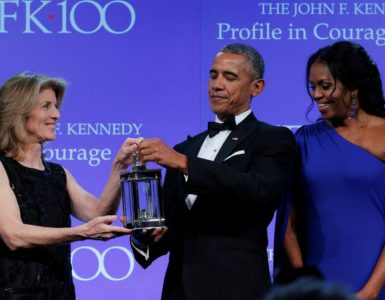Donald’s Trump’s first budget proposal named “America First: A Budget Blueprint to Make America Great Again,” is all set to increase defense expenditure by $54 billion. This is a huge increase in the defense budget, the largest since Ronald Reagan’s tenure in the 80s. This money will be used for buying weapons, fighter jets and ships. Substantial money will go towards facilitating troop readiness.
But the 10% boost in defense budget comes at a price; 18 agencies will face budget reductions some of the reductions are likely to be quite severe. The Environment Protection Agency will be the biggest loser with a 30% cut, they will be forced to lay off about 3000 employees and shelve 50 ongoing programs.. Agriculture, labor and state departments will have around 20% reduction. Significant cuts in foreign aid programs can also be expected.

The budget also proposes to completely eliminate any federal financial support for the National Endowment for the Arts, the National Endowment for the Humanities and the Corporation for Public Broadcasting., all of which enjoyed patronage from former president Barrack Obama. Law enforcement agencies are not facing any cuts neither are politically sensitive programs like food aid for pregnant women and their children, housing vouchers for the poor, aid for special education and school districts for the poor, and federal aid to historically black colleges and universities.
One of the most controversial cut would be the $5.8 billion reduction faced by National Institutes of Health and this seems against Trump’s own agenda as he promised not so long ago that he wants to eliminate all disease. On the other hand his intentions regarding the border wall between US and Mexico is quite clear as the project will receive $1.7 billion in funding this year and an additional $2.6 billion next year.
In the US, the Congress makes the budget and it is apparent that Trump will have a hard time coming into an agreement with the lawmakers. There is quite vocal opposition from a section of lawmakers including some top republicans whose support is crucial because they must vote to authorize government appropriations. Though the lawmakers often change budget proposals, the proposals still serve as a window to how the President plans to govern and what his priorities are. And this budget definitely serves that purpose.
“This budget represents a president who is beholden to nobody but the voters,” White House Office of Management and Budget Director Mick Mulvaney said. “He is following through on his promises. We did not consult with special interests on how to write this budget. We did not consult with lobbyists on how to write this budget. The president’s team wrote this budget and that’s what you’ll see in the numbers.”
(Writing by Ananya Dutta; Editing by Mohith Agadi)
















